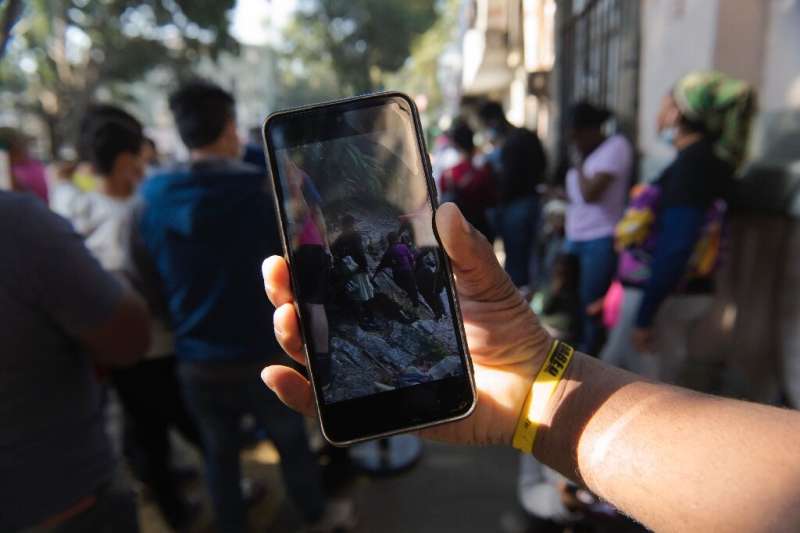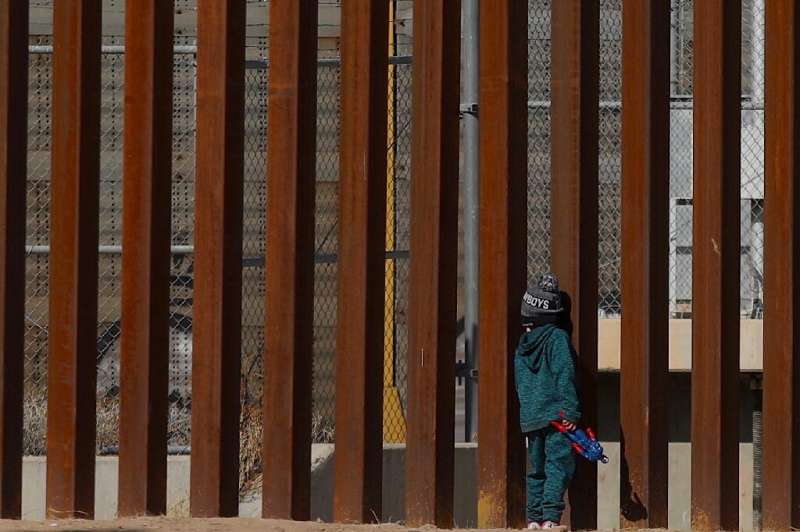People smugglers use TikTok to promote their services

A photo posted to TikTok shows a group of people dressed in camouflage, hoping to blend into the shadowy vegetation dotting the nighttime landscape of the Mexican desert. The picture was not uploaded by social media influencers on an adventurous vacation—it’s an advertisement by people smugglers.
Technology-savvy criminals using the popular video-sharing app are posing a growing challenge to Mexican and US authorities fighting a regional migration crisis.
“Departing this weekend. People from Mexico interested in crossing to the United States, leave your messages,” the TikTok post said.
Another account offering to smuggle irregular migrants through the violence-wracked Mexican border state of Tamaulipas shows a photo of minors in an inflatable boat on a river.
“We also make crossings with children and family,” it said.
An AFP investigation found dozens of similar accounts around the region, including in Guatemala, Colombia and Ecuador.
And using the hashtag #pollero—a slang term for a people smuggler—one account offered “safe work” for drivers in the southwestern US state of Arizona for payment of up to $15,000.
“If you have a car and want to make easy money, write to me,” said a message in English.
The advertising violates TikTok’s official rules, which prohibit the “promotion and facilitation of criminal activities.”
“Maintaining the safety of our community is a responsibility we take very seriously,” a spokesman for the app told AFP.
“We do not tolerate content that promotes human exploitation, including human trafficking,” he added.

According to TikTok, in the third quarter of 2022 the firm removed 82 percent of the videos linked to criminal practices on its own initiative.
Seeking to fend off calls for the app to be banned in the United States as long as it remains a Chinese company, TikTok chief executive Shou Zi Chew was due to testify before US lawmakers on Thursday.
He would deny that the app has, or would ever, share data with the Chinese government, according to his prepared remarks made available by the House Energy and Commerce Committee.
Cyber police patrols
In Mexico, authorities have formed specialized cells to counter the threat posed by people smugglers on social media.
In a room full of computers in Mexico City, dozens of experts from the government’s Criminal Investigation Agency have been monitoring social media accounts since 2017.
A board lists people of interest and their online activities.
The unit has been involved in around 300 human trafficking investigations, said Rolando Rosas, head of the communications center at the Federal Ministerial Police, part of the Attorney General’s Office.
In Mexico, “digital service companies are obliged to hand over information when there’s a crime,” he said, welcoming the good cooperation with social media platforms.
The unit’s head, Benjamin Oviedo, said that his team intervenes, for example, when payment to a trafficker is agreed on or made through the internet.
But the advertisements are not always real.

“Many of the things that we find can sometimes be a fraud,” said Rosas.
According to a report published by the International Organization for Migration (IOM) in February, TikTok is used by people smugglers as a way to promote successful cases of irregular crossings.
It warned that the crime opened the door to others, such as the sexual exploitation of minors.
The organization surveyed more than 500 migrants in transit, of whom nearly two-thirds said they had accessed a smartphone and the internet during the trip.
Transporting migrants by road, often in vans or crammed into the back of trucks, sometimes without ventilation, is one of the quickest but most dangerous methods used by people smugglers.
More than 7,600 migrants have died or disappeared in transit in the Americas since 2014, according to the IOM.
Of those, nearly 1,000 were the result of vehicle accidents or linked to hazardous transport, the United Nations agency says.
TikTok is also used by migrants to share advice with each other on how to survive the treacherous journey to the United States.
Andrea, 25, and her friend Beatriz, 29, who left Venezuela in October, used the app to find recommendations on traveling through danger zones such as the Darien Gap, an inhospitable jungle area straddling the Colombian-Panamanian border.
Now in Mexico, Andrea, who did not want to give her full name, pulled out her cellphone to show the profile of a young woman who has managed to reach the United States and put together a travel blog.
She gives recommendations of what to pack and which medicines to carry—advice that is sometimes, but not always, useful, Beatriz said.
“Everyone’s experience is very personal,” she added.
© 2023 AFP
Citation:
People smugglers use TikTok to promote their services (2023, March 23)
retrieved 23 March 2023
from https://techxplore.com/news/2023-03-people-smugglers-tiktok.html
This document is subject to copyright. Apart from any fair dealing for the purpose of private study or research, no
part may be reproduced without the written permission. The content is provided for information purposes only.
For all the latest Technology News Click Here
For the latest news and updates, follow us on Google News.
